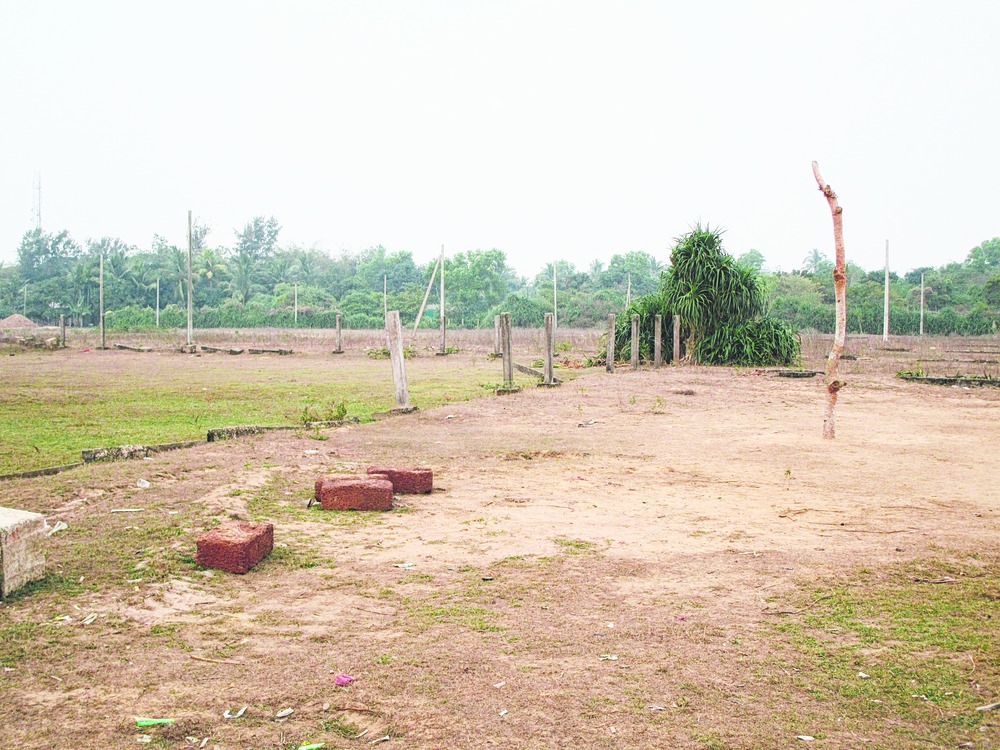
Paradip, June 15: Indian Oil Corporation Limited is yet to start relocating those displaced by its refinery to its proposed resettlement colony.
Work on IOCL's resettlement colony started about a decade ago. But, the resettlement colony for those who gave up their homestead land for the project is yet to come up, while the refinery that was inaugurated by Prime Minister Narendra Modi on February 7 has already started operations.
"The Prime Minister commissioned the project on February 7. The project work was completed on a war footing. However, it seems no one was bothered to construct the resettlement colony. None of the affected families have been allotted a pucca house in the resettlement colony," said 58-year-old Chabbi Behera of Dandikipur village, who lost her land to the project.
Only some concrete pillar fences and defunct drains can be seen at the proposed colony site at Dhinkia village. There is hardly any construction on to house the displaced persons. The six-acre stretch of the proposed colony in the backyard of the Dhinkia gram panchayat office has the deceptive look of a cattle-grazing field.
Sources said 143 families had to part with their ancestral homestead land so that the Rs 34,555-crore refinery project could come up. Apart from this, some 1,600 families had to part with agriculture land from their cultivable possession to facilitate setting up of the refinery. The oil company had acquired 3,344 acres from landowners at Rs 1 lakh per acre in 2002.
IOCL had drawn up the resettlement colony plan in 2007 for 143 displaced families who were worst hit by the project.
"The refinery project has left us nowhere. The callous authorities have never bothered to think about us," said another displaced person, Arakhita Behera (45).
IOCL refinery project's executive director Ramjee Ram, however, said construction would be taken up shortly at the site.
"Sixty-five displaced families have already been handed over 10-decimal plots each at the colony. The remaining 78 families had opted for fiscal grants instead of housing plots in the colony. Accordingly they were given monetary grants," he said.










